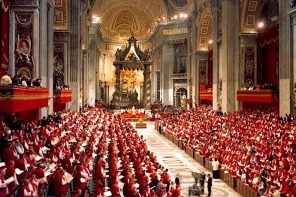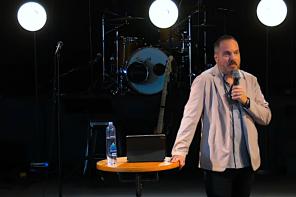Newsweek is out with a slideshow of 10 faces of the Christian right — a movement the magazine says is evolving. It’s apparently evolving so much that it includes people who aren’t associated with the Christian right.
Ten is a pretty small number to best represent a movement Newsweek describes as “changing and growing more diffuse, even as it remains a potent force in American politics.” While some of the picks seem obvious (Marjorie Dannenfelser of the anti-choice group Susan B. Anthony List, or Jim Daly, the new head of Focus on the Family, or Robert George mastermind of the Manhattan Declaration) legal scholar Melissa Rogers is most decidedly not a member of the Christian right. Rogers, who has worked for the pro-church-state-separation group the Baptist Joint Committee on Religious Liberty, and now has an affiliation with the Brookings Institution, is one of the country’s best authorities on church-state separation law, and an advocate for enforcement of the Establishment Clause. Not only would Rogers herself be surprised to be on the list, I’d imagine, but so would the Christian right itself: one of its core aims is the reversal of Supreme Court jurisprudence on the separation of church and state.
President Obama chose Rogers for the Advisory Council to his Office of Faith-Based and Neighborhood Partnerships, and she ultimately shepherded the drafting of the Council’s recommendations, particularly those on reforming aspects of the Office that critics believed violated the Establishment Clause. That’s not to say that he only picked liberals — in fact, Obama did choose many advisors who are most definitely conservative (such as Joel Hunter, who is also on Newsweek’s list) and center-right (such as Jim Wallis, who I’d imagine would be unhappy to be placed on a list of religious right-ists, although one could argue on some issues it’s deserved). Hunter himself, although sharing much the Christian right (he supported, for example, a 2008 measure in his home state of Florida to ban gay marriage), he’s also affiliated himself with “common ground” measures that reject the scorched earth tactics of the religious right. In fact, a companion piece in Newsweek pointed out Hunter’s and Wallis’s divergence from their religious right brethren, even as they made the magazine’s top ten list of Christian right leaders.
Given that Wallis and Hunter are close spiritual advisors to the president, if one does consider them part of the Christian right, then one should conclude that Obama has had a most remarkable right-leaning spiritual evolution from Chicago to Washington.
Considering Newsweek chose this list to represent the increasingly “diffuse” movement, it missed much of what makes it tick. The people on the list represent a visible slice of the Christian right (or don’t represent the Christian right at all) but it’s precisely because the movement is diffuse that the list doesn’t offer much in the way of illumination (and indeed offers much in the way of inaccuracy). Where are the Pentecostals and charismatics? Where are religious Tea Partiers?
Finally, Lisa Miller’s piece, which I referred to above, discusses the abandonment of the “social issues” in favor of making “big government” (a.k.a. “socialism”) the core issue. This, though, isn’t new; it’s a repackaging of some very old themes of the Christian right.




